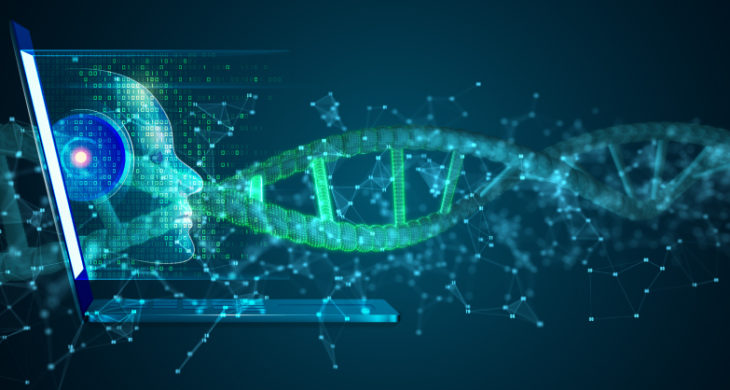
Date: 23rd December 2020
The digital revolution is transforming biology, research and healthcare, and the intersection of biology and technology is driving the most exciting innovations of the century. Digital biology is opening up whole new areas of research and accelerating medicine, diagnostics and new therapies.
So what inspiring research did 2020 bring?
Here are our top 5 most read articles of this year!
Number 5: The latest AI-driven solutions for COVID-19
In May we reported that multiple artificial intelligence (AI) – driven solutions had been announced to aid the fight against COVID-19. We discussed the latest developments; from AI-data management systems, AI-diagnostics to AI-crowd control solutions.
http://eha.3a7.mywebsitetransfer.com/latest-ai-driven-solutions-covid-19/
Number 4: Machine-Learning predicts best-in-class gene base editor
Base editors (BEs) are potent tools for precise genome editing, and can be used to correct single disease-causing mutations. New BEs are being developed at an astonishing rate and finding the optimal one for a potential therapeutic or specific edit can be difficult.
In June scientists developed a machine learning (ML) model that accurately predicts base editing outcomes and determines which BE is ‘best-in-class’. The team created a catalogue of BEs, designing and training a ML model to predict each base editor’s particular ‘personality’ allowing researchers to choose which BE is the most suited for a particular gene sequence.
http://eha.3a7.mywebsitetransfer.com/machine-learning-predicts-best-in-class-gene-base-editor/
Number 3: Using digital platforms to determine genetic susceptibility to COVID-19
The COVID-19 pandemic has unearthed many questions as to why the severity of the disease can vary so widely between people.
In June the UK Government announced a major whole genome sequencing project designed to help scientists uncover the genetic susceptibility to COVID-19 in a ground-breaking nationwide study. The study will identify those genetically at risk, and support the search for new treatments and therapies, which can be fast-tracked into clinical trials.
http://eha.3a7.mywebsitetransfer.com/digital-platforms-determine-genetic-susceptibility-covid-19/
Number 2: Bionic vision device prepared for a world-first human clinical trial
Millions of people around the world experience vision loss due to some form of optic nerve damage, leading causes are diseases such as glaucoma or by severe trauma.
In September researchers developed a revolutionary, bionic cortical vision device, Gennaris, which is now being prepared for a world-first human clinical trial following a successful long-term pre-clinical trial in sheep.
http://eha.3a7.mywebsitetransfer.com/bionic-vision-device-world-first-human-clinical-trials/
Number 1: Will AI be the most powerful tool against coronavirus – COVID-19?
Scientists and biotech companies are coming together in the race to fight COVID-19. Whilst, there is no substitute for epidemiologists, scientists and public health officials, AI has played a crucial role in multiple areas of controlling and treating the disease.
Back in February we summarised some of the key areas where AI had played a critical role so far and where else it might help. From AI predicting the spread of infections, using data to understand the nature of the virus, to aiding complex decision making, AI-driven vaccines and drug discovery. AI is particularly suited to compiling rapidly evolving information, and analysing large data sets, combined with the learning capabilities of many algorithms this makes AI a hugely valuable tool in this COVID-19 battle.
AI applications for COVID-19 have certainly been far reaching and they have caught the attention of our readers and this article has climbed to the top of our most read digital biology articles.
http://eha.3a7.mywebsitetransfer.com/ai-powerful-tool-coronavirus-covid-19/


